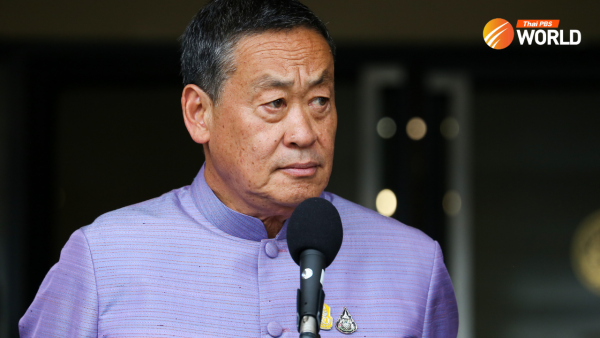Can Parliament shape up and be counted?

Thailand’s legislature has two days to prove it can tackle a crisis properly, or it can throw some more gasoline into a raging fire. At this hour, doubters are threatening to outnumber believers as the Parliament prepares to hold and extraordinary session next week to “discuss” the highly-volatile political situation.
The special session is fraught with ironies and questions, big and small. Is this the very Parliament that appointed Prayut Chan-o-cha as prime minister and triggered accusations of a twisted and biased political system, paving the way for a massive student-led unrest, in the first place? Will the session really “discuss” the problems or will it turn into an extreme partisan showdown that gets virtually nowhere? Will this extraordinary session come up with workable solutions? If so, will they be implemented?
How will Parliament handle taboo subjects that have been less taboo on rally stages but remain highly sensitive among those in the legislature? Off-camera debate will anger the protest movement but publicizing it or broadcasting it live will also lead to a major outcry.
Will the two days be wasted? Can MPs, particularly those in the opposition bloc, withhold partisanship and truly utilize the limited time? If they can, will the government listen?
Prime Minister Prayut has been reluctant, for good reasons. He has been softened up outside Parliament so he certainly does not want to be a punchbag again inside. Government MPs can “guard” him, but tactics and counter-tactics can render the two days useless.
The likely good side of a special parliamentary session is that, even it turns into a political face-off, it can hopefully let off some steam and maintain the fragile relevance of this controversial legislature. That can be a wishful thinking, considering the extreme divide between the government and opposition blocs.
And in case the prospects of long-drawn-out protests increase, Parliament is better off projecting itself as relevant.
Two political scenarios have emerged. One of them is not wanted by those who dread Thailand’s modern history. This scenario is tragic.
To affect a major political change, a groundswell of uprising supported by everyone outside the corridors of power is needed, something of the October 14, 1973 or Ferdinand Marcos scales. This, despite the massive number of protesters and their persistence, is not the case at the moment. Or there has to be violence like when the yellow shirts were cracked down on, or when the Rajprasong intersection was bloodily cleared, or when May, 1992 turned “black.”
The yellow shirts’ crackdowns were followed by momentous political changes. The Rajprasong bloody clearance also led to a shift of political power. The “Black May” spawned several significant revamps. In those three periods, Parliament was practically useless when peace was concerned.
Now, Thailand has been dangerously flirting with the possibility of another period of violence, exacerbated by the use of water cannon, the state of emergency, the blatant action against a revered institution, the unpredictable volatility of leaderless gatherings, rampant abuses of the social media by both sides. Most people who matter are exercising restraint, though, so the water cannon is looking like the worst case at the moment.
Which leads to the other emerging scenario. It rules out an immediate, drastic change and the violence that featured in the protests of yellow shirted, red shirted and multi-color shirted demonstrators. This scenario of long-drawn-out confrontation is backed by the facts that the protest movement is advertising “non-violence”, that the general public are keeping a close scrutiny of how the government is treating protesting youngsters, and that crippling business chaos caused by COVID-19 is making the protesters extra-careful.
Whatever lies ahead, the current crisis is providing acid tests for Thailand’s legislature, executive branch and judiciary. A major irony is that if they fail, it does not necessarily mean a new system that has to emerge afterwards will be better.
By Tulsathit Taptim






